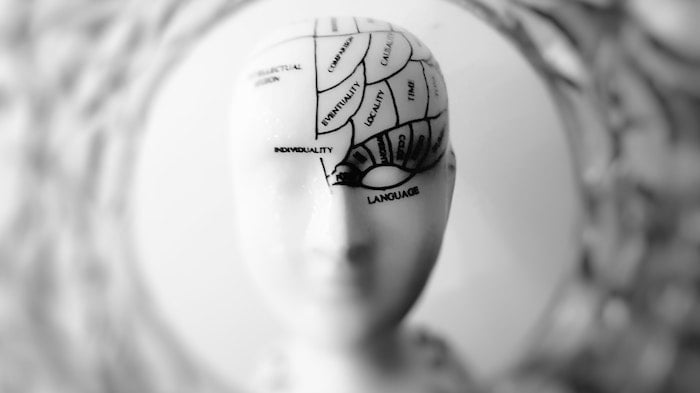- Home
- Addiction Guides
- How to Stay Sober
How to Stay Sober
Toxic substances such as drugs and alcohol pose so many health, social and economic consequences to people in our communities.
However, many people continue to engage in activities which include consuming these substances time and time again, why is that?
That is because drugs and alcohol are highly addictive substances, and not only that, they have been made mainstream by many members of the community.
Alcohol is more accessible and affordable than ever, and it is everywhere we go throughout our daily life. It is not a surprise when we see the same people binge drinking repetitively, or consuming illicit substances in risky environments.
The only way to combat the effects of drugs and alcohol is to become sober and to stay sober. In this article, we are going to look at:
- The short-term and long-term effects of drugs and alcohol on the mind and body
- Why abstinence is the most effective way to achieve and maintain sobriety
- The benefits of practising abstinence and being sober
- How to practice abstinence and maintain sobriety
Short-Term Effects of Drugs & Alcohol on the Mind & Body

Drugs and alcohol have many short-term effects on our physical and mental health which should convince us to become sober. These short-term effects can come in the form of health, social and economic factors.
Some of the short-term effects of drug and alcohol consumption include:
- Hangovers and withdrawal symptoms: Inevitably, people associate hangovers and withdrawal symptoms with nights of heavy drinking or drug use. These withdrawal symptoms can include vomiting, headaches, dehydration, and if serious enough people can be admitted to hospital due to alcohol poisoning or drug overdose. Hangovers also lead to lost productivity.
- Erratic and Unpredictable Emotions: While drugs and alcohol may provide us with a sense of euphoria and happiness, these feelings are short-lived. Additionally, these substances have the ability to make someone not only sad and paranoid, it can make some aggressive and even violent.
- Worse Appearance: Drugs and alcohol can cause us to have bloodshot eyes, irritated and red skin, inflammation, bloating, and more. The signs that someone frequently consumes drugs or alcohol are noticeable when compared to someone who is sober.
- Psychosis: After consuming excessive quantities of drugs or alcohol, people can go into a state of psychosis. This means that their brains are under the influence of these substances to such an extent that they lose touch with reality.
- Impaired Judgement: These substances can make people do things they would typically not do when they are sober. ‘Dutch courage’ is a phrase to describe how alcohol provides us with the confidence to do things without considering their consequences. This can lead to people performing acts which are illegal or will have profound social ramifications.
- More Money Spent: Since drugs and alcohol are addictive, people tend to spend more. While alcohol is cheap and accessible, drugs are illegal and are more expensive as a result. Being under the influence of these substances can lead to a spiral of spending much more money than you should because of your impaired judgement.
Long-Term Effects of Drugs & Alcohol on the Mind & Body

For some people, the threat of an unpleasant hangover and days which could be spent relaxing or earning money lost due to these hangovers is enough in order to prevent them from reinitiating the process and cycle of drug and alcohol consumption.
However, many people choose to continue consuming these addictive and toxic substances, whereas others become physically and psychologically addicted, suffering substance use disorder.
If you find it difficult to remain sober or you are suffering from a drug or alcohol addiction, there are many long-term health effects which you should be aware of.
These include:
- Premature Death: One of the most devastating long-term effects of drug and alcohol consumption is suffering from premature death. Alcohol-related and specific deaths are some of the leading forms of preventable death in the world. These deaths may be related to illnesses, accidents, violence and murder, and so on.
- Increased Risk of Developing Cancer: Alcohol in particular is a carcinogen. This means that it increases the risk of developing cancer. Consuming too much alcohol and drugs which have cancer-causing chemicals can lead to throat cancer, breast cancer, rectum cancer, liver cancer, lung cancer, and much more.
- Liver Disease: Liver disease and cirrhosis is one of the leading causes of death in the United Kingdom, and frequent and excessive alcohol consumption is a huge factor in the development of these conditions. By constantly filtering alcohol in the body, cells of the liver begin to die, and inflammation and scarring will take place.
- Cardiovascular disease: Due to high blood pressure, a significant build-up of fat, consuming too much drugs and alcohol can lead to strokes and heart attacks
- Developing Physical and Psychological Addiction: By consuming too much of these substances, chemical changes in the brain will occur. These changes in the reward pathways of the brain will mean that people experience discomfort and potentially fatal withdrawal symptoms if they do not consume their addictive substance.
Why Abstinence is More Effective than Moderation
The term abstinence means to not indulge in something, whether it be gambling, sex, drugs, or alcohol. And when it comes to minimising and overcoming the damage that drugs and alcohol can have on our minds and body, abstinence is the most effective way to stay sober.
Abstinence, when compared to other methods of reducing drug and alcohol effects such as moderation or harm reduction, is the most effective way to reach and maintain a sober life.
Harm reduction and moderation refer to the reduction in drug or alcohol intake, which means that reaching sobriety is not viable through these methods.
If someone is addicted to drugs or alcohol, consuming a single unit or beverage of these substances will be considered a relapse.
While abstinence is absolute, meaning that you either are abstaining or you aren’t, moderation or harm reduction can lead to a downward spiral of excessive consumption if you still surround yourself and indulge in these substances.
While abstinence is the most effective way to stay sober, it is important that some people do develop a moderation or harm-reduction method.
This applies to people who are suffering from severe drug or alcohol addictions, and their withdrawal symptoms may be fatal if they abstain abruptly. These people will need to seek professional help from health practitioners.
What are the Benefits of Abstaining or Staying Sober?

The benefits of sobriety are endless. Abstaining from addictive and harmful substances such as drugs and alcohol will lead to a range of physical and mental health benefits.
Some of these benefits will present themselves within days or weeks, whereas others may require a longer amount of time to realise and even truly appreciate.
Below are a few benefits of maintaining sobriety:
1. Reduced Risks of Developing Cancer and Disease
Alcohol and other toxic substances are carcinogens. This means that they have cancer-causing properties which expose people to developing cancers. Some of these cancers include throat cancer, rectum cancer, breast cancer, lung cancer, and much more.
In addition to these cancers, alcohol and drugs can lead to illnesses and diseases such as Alcohol Related Liver Disease, cardiovascular disease, high blood pressure, strokes, heart attacks, and much more.
By abstaining from alcohol and drugs, your chances of developing these illnesses and cancers are far far lower.
Your likelihood will be far lower because not only are you abstaining from the toxic chemicals that these substances expose you to, but you are also saving your body from high blood pressure, weight problems, and other effects of consuming alcohol and drugs.
2. Improved Mental Health
Some substances such as alcohol, cannabis, benzodiazepines, and other drugs, are often used in order to relieve people of anxiety, stress, anger, and so on.
However, these substances are classified as depressants. When frequently and excessively consumed in the long term, these depressants can lead to mental health problems such as anxiety and depression.
This is because depressants are a substance which depresses your central nervous system which, while it may relax people in the long term by affecting chemical messengers in the brain, it can cause a range of mental health issues in the long term by affecting the natural balance of dopamine in the brain.
In addition to depressants, some addictive substances such as cocaine, amphetamines, and more, are stimulants. When these stimulants are consumed in frequent and excessive quantities, they can also lead to mental health issues.
Hallucinogens, substances which include LSD, ketamine, ecstasy, and so on, can also lead to psychosis, anxiety, depression, and other forms of mental health issues.
When people repetitively consume these addictive substances, their brain begins to associate the consumption of these substances with a significant release of dopamine in the brain. However, this leads to problems over time as people will not be able to produce dopamine naturally without these substances.
As people begin to feel exacerbated symptoms such as anxiety, depression, hopelessness, paranoia, and more, they will keep turning to these addictive substances in order to self-medicate.
In fact, around two-thirds of people who enter rehab in order to recover from addiction in the UK also suffer from mental health disorders.
By becoming sober, people will experience a significant reduction in blood pressure and cortisol levels which will contribute to decreasing levels of stress and anxiety. In addition to these benefits, becoming sober, aspects of the brain will show signs of recovery.
The hippocampus, which is responsible for learning and memory, will begin to recover. Grey matter in the brain, which is responsible for controlling movements, memory, and emotions, also begins to increase in the brain after a period of abstinence.
Abstaining not only reduces symptoms of anxiety and depression, but it also helps brain performances recover.
3. Improved Physical Appearance

Excessive alcohol consumption can cause dehydration, bloating, bloodshot eyes, skin irritation and inflammation, acne, and much more. Weight gain is also heavily associated with alcohol consumption because of the number of calories, its sugary and starchy contents possesses.
Alcohol is packed with what many people call empty calories. A pint of lager has almost 300 calories and a glass of wine has around 150 calories.
Additionally, most alcoholic beverages are devoid of nutrition. Not only are people consuming heavy quantities of empty calories, but these substances can also affect their ability to absorb nutrients, which may enhance cravings and lead to more weight gain.
On the other hand, drugs can cause severe acne breakouts, tooth decay (e.g. meth mouth), severe weight loss, hair loss, scars from skin lesions, muscle atrophy, and far more.
So, not only do drugs and alcohol severely affect your organs and your cognitive functions, they affect your appearance in a way which makes it entirely visible that you consume these substances.
People who have irritated skin, bloodshot eyes, bloating and are overweight are likely to be alcohol consumers. Those who are underweight, gaunt, suffering from excessive tooth decay, and have many lesions on their skin are likely to be consuming drugs in excessive quantities.
Abstaining and staying sober means that not only will your body become more efficient in absorbing valuable nutrients, but your cravings for food will also be reduced, and your weight will be much more manageable.
You will be consuming fewer calories, and your body will recover from the inflammation which was caused by alcohol for such a long period of time.
4. Improved Sleep Quality and REM Quality
One of the most significant benefits of being sober along with a reduced risk of premature death is the improvement in sleep quality you will experience.
This is the case whether you’re consuming depressants, stimulants, hallucinogens, or else.
As expected, substances which are classified as stimulants (e.g. cocaine or crystal meth) make it difficult to fall asleep and they shorten our sleep duration.
While substances which are depressants may make us feel drowsy by relaxing and depressing the nervous system, they also affect our quality of sleep.
This is because they decrease the amount of time we spend in REM (rapid eye movement), the stage which is important to help process our memories, emotional processing, brain development, and other cognitive functions. This means that sleep quality is imperative towards improving our quality of life.
A lack of sleep and insomnia, as a result of drug or alcohol consumption, or else, will lead to a lack of energy, poor performances at work or at school, and it can also block our metabolic process.
Increased sleep quality can lead to higher energy levels, a boosted immune system, lower risk of developing health problems, reduced stress, and much more. When combining the benefits of sobriety with improved sleep quality, abstainers will experience a much higher quality of life.
5. More Money to Spend on Other Things

Spending money on accessible alcohol or illicit substances (whose legal status makes them very expensive) each week as a way to cap off a week of studying or working can lead up to a significant level of expenditure.
Because these substances are addictive, we are far more likely to consume them in higher quantities than not.
It is estimated that in the UK, the average household of around 2.4 people spends almost £1,000 per year on alcohol alone. When mixing alcohol consumption with drugs (alcohol consumption is one of the biggest predictors for drug consumption and addiction), this expenditure increases significantly.
People who consume cocaine frequently may spend up to around £2,500 per year on their addictive substance, whereas people who consume cannabis frequently may spend around £1,500 annually on their substance of choice.
When combining alcohol consumption with a cocaine or cannabis addiction, people may be paying up to thousands per year on their habits or addiction.
6. Your Romantic and Sexual Relationships Will Be Healthier
It goes without saying that drugs and alcohol can affect your romantic and sexual life in many different ways.
While many people may associate going out, drinking alcohol and consuming drugs is associated with having sexual intercourse with someone else during a period of debauchery, they can affect people’s relationships immensely.
While some stimulant drugs may not necessarily have a negative effect on someone’s performance in the bedroom, depressants have a range of effects on sexual functions.
Despite making some people more boisterous, with an impaired sense of judgement (thus being more likely to engage in sexual intercourse with strangers), their sexual functions might be impaired significantly.
Alcohol, in particular, is a strong reason as to why people suffer from erectile dysfunction. This not only makes them unable to perform sexually, but it can also intensify feelings of self-loathing, anger, and anxiety. It may lead them to develop Sexual Performance Anxiety.
Furthermore, drugs and alcohol can ruin relationships on a romantic level dramatically. People may turn towards these addictive substances in order to self-medicate and hide whatever relationship problems they have, rather than addressing them with their partner.
Another way that behaviour-altering substances can ruin our relationships is that they can make someone more irritable, angry, and aggressive, and it may even make them act out violent actions against their partner. It’s estimated that in around 40% of domestic abuse cases, alcohol use is heavily involved.
7. Less Injury Prone & Less Likely to be Victimised
Let’s be honest. How many of us can say that we have done something silly and hurt ourselves while under the influence of alcohol?
While it may be all fun and games discussing the stupid things with our friends while we were under the influence, it isn’t taken seriously until someone is severely injured or even killed.
Consuming drugs and alcohol will affect our coordination and motor skills, sense of judgement, and more. When we combine these factors, we are increasingly likely to be injured and seriously hurt ourselves in addition to the health complications and illnesses which these substances pose.
Studies show that drink driving accounts for around 15% to 20% of all road accident deaths in the United Kingdom. This is whether the driver or the sober and unknowing victim is the one who dies due to drunk driving behaviour.
Hospital admissions in the capital, London, double on the weekends due to alcohol and drug-related illnesses and accidents. On the weekend, almost half of admissions are related to drugs or alcohol, or even specifically related to these substances.
Many of these cases of hospital admissions may be related to violent crime. In fact, around 50% of violent crimes may be related to drugs or alcohol in one way or another.
Staying sober not only makes us more aware and functional, and less susceptible to being victimised, but it also means that people who have trouble coping with their behaviour and emotions do not become irritated, angry, or violent towards others.
8. More Productive Due to Lack of Hangovers

While hangovers and ‘come downs’ are temporary, typically only lasting from a few hours to 24 hours depending on their severity, when they begin to add up, you’ll realise that you’ve lost so many days due to drugs and alcohol.
Hangovers and comedowns can present symptoms such as headaches, vomiting, nausea, anxiety, irritability, and others which will make us want to stay in bed all day without interacting with anyone.
Should someone go out every Friday or Saturday, they may be hungover each week. This amounts to 52 days of lost productivity and being bedridden per year.
These 52 days per year could be attributed to relaxing your body and recharging your mind effectively following a hard week of studying or working, or it could mean exercising or learning a new skill.
Additionally, once the hangover symptoms subside, people will still be feeling the effects of impaired sleep quality, lack of energy, malnutrition, and so on, which will continue to affect their work performance or their studies.
Once they’ve overcome these negative symptoms, it is nearly time for the weekend to begin this cycle all over again.
How to Stay Sober
Now, despite that you may have experienced all of the negative effects of drug and alcohol consumption firsthand, doing a bit of extensive research may be the catalyst in moving towards a healthier lifestyle of abstinence.
While many people do not believe that they have the ability to become and stay sober, it is possible for all of us to do so. Placing limitations on ourselves only entrenches ourselves further into our bad habits and unhealthy way of life.
However, it is also important to consider how extensive someone’s habits or dependence is when it comes to drugs and alcohol. While one person may be able to abstain from these substances with some general advice and willpower, others will require professional help from health practitioners in order to recover from addiction safely.
First, below we will discuss the lifestyle changes and advice that we can apply in our lives in order to overcome drug and alcohol use in order to become and stay sober.
1. Setting and Achieving Attainable Goals
The task of abstaining and maintaining your sobriety is one which can seem overwhelming and too challenging.
The idea of staying sober forever, implies that you are giving something up forever. Rather than telling yourself that you are giving up drugs or alcohol forever, you only need to tell yourself that you are giving up drugs and alcohol for the day.
This breaks up the challenge significantly. Rather than worrying about how long you can sustain your sobriety for, all you need to worry about is being sober for the rest of the day.
Then, you can start all over again the next day.
The longer you are able to sustain your sobriety, the more you will realise that it is in fact a very achievable goal. Time will pass, and your dependence on drugs and alcohol will diminish significantly.
2. Join a Support Group

Support groups, also known as fellowship groups, are extremely effective at helping people stay sober.
Following a comprehensive treatment plan at rehab, it is typical that former patients join support groups which are based on sobriety and abstinence such as Alcoholics Anonymous, Narcotics Anonymous, or SMART Recovery, for example.
It’s also important to note that you do not need to be a former patient in order to join these support groups. As long as you have the desire to abstain from drugs and alcohol, you are welcome at these support groups, regardless of your race, class, or beliefs.
Support groups can be a fantastic way for those who have left rehab and also those who merely want to abstain from their drug and alcohol consumption in order to have a better life.
While attending support sessions hosted by these nonprofit groups, they will have the platform to share their experiences with others, and gain insight into other people’s experiences of abstinence and maintaining sobriety.
This places people in a new environment where they have a new support network and have access to a supportive community. Social reinforcement is rife at groups such as AA, NA, and SMART, simply because each member, no matter how different, has the same goal in mind which is to maintain their sobriety.
These groups tend to employ therapies and programmes such as the 12-Step Programme. It is a highly popularised programme where members are provided with lifestyle structures in order to help them stay sober.
Another thing that makes these support groups so effective is how accessible they are. Support sessions, while typically held in person and in a number of different locations, can also be attended online.
3. Overcome Triggers and Implementing a Relapse Prevention Plan
In order to not only become sober but to stay sober, you will need to replace some of the bad habits and self-destructive tendencies that you once had.
Some people may turn towards drugs and alcohol as a form of self medicating when they are angry, stressed, or anxious.
If someone is able to become sober, it may not necessarily matter if they do not address their bad habits. They may have success in sustaining their sobriety when they are in a good frame of mind, for example, but they may succumb to relapse if they are facing adversity and difficult times.
Therefore, it is important that people develop healthier coping mechanisms in order to maintain their sober streak. Rather than turning towards drugs and alcohol in times of stress, they can adopt healthier coping skills such as:
- Meditation & Mindfulness
- Yoga
- Exercise
- Developing and engaging in hobbies such as gardening, cooking, art and crafts etc.
These coping mechanisms may enhance the person mentally, physically, and spiritually, rather than exposing their body to toxic substances such as drugs and alcohol.
People will need to develop these coping mechanisms in times of hardship, whether they are physically craving these toxic substances, or they are in need of emotional support.
Relapse triggers come in many different forms, and it is important to develop a healthy coping mechanism to be able to be sober in the long term.
There are a range of relapse prevention plans available, with HALT, being a popularised form. They can teach people how to overcome emotional problems as well as physical cravings.
4. Develop New Interests

Developing new interests is a great way to stay focused and establish new goals in life.
Whether you take up interests such as gardening, cooking, or else, you will learn how to develop new skills in life and you’ll be looking towards finishing the next project.
Exercise is another fantastic way in which people can maintain their sobriety. Making one healthy choice can have a snowball effect.
The more healthy choices people make, the less likely they are to indulge in unhealthy foods or substances, for example. As they say, actions become our habits, and habits become our destiny.
Additionally, whether you are exercising, cooking, painting, and so on, you can join classes in order to exercise and develop these skills. This is another opportunity to find people who have a similar lifestyle to yours, and are looking towards improving themselves.
5. Find Support Networks and Communities of Sober People
It is important that when you want to become sober and want to stay sober that you surround yourself with people who want the best for you.
It is absolutely possible to be close to people who drink or consume drugs while you yourself are sober, however, you need to eliminate those who are enablers or incite peer pressure from your life.
It’s also important that you find a community of people who want to achieve the same goal. This can help you sustain your positive lifestyle changes monumentally. Surrounding yourself with people who have similar goals and objectives in life can invoke social reinforcement.
So, how can you find a community of abstainers?
There are many ways which people can make new friends who also want to practice sobriety. People can join social platforms such as Sober Socials in order to find and make friends with those who have similar interests near them.
If using friends finders is too direct or you do not like this method of making friends, you can take part in sobriety challenges such as Sober October and Dry January. These are challenges which not only advocate sobriety and improved health, but it can be a very social event too.
Many people take part in these challenges where they abstain from alcohol for a month and share their achievements with others.
While most people only intend on abstaining for a month, many stay sober for a much longer period of time because of the benefits they have experienced due to sobriety.
Seeking Professional Help For Your Drug or Alcohol Dependence

While applying these tips will always be of use, you may need more if you are suffering from physical or psychological dependence on these substances. If you think that you may be suffering from a more serious form of drug or alcohol dependence, it is worth seeking a diagnosis from a licensed health professional.
By undergoing an official health and addiction assessment, you can be officially and properly diagnosed for your neurological condition, in this case, addiction. Addiction is ultimately a brain disease of chronic relapsing.
You will then be referred to a rehabilitation facility, or simply called a rehab, in order to help you overcome your dependence and addiction.
While attending rehab and treatment centres, patients will undergo a range of therapy and counselling in order to not only treat their alcohol or drug addiction, but help them reconfigure any cognitive, behavioural or emotional problems that they may be suffering from.
Addiction treatment and therapy at rehab often utilise a holistic approach and even used forms of holistic therapy. This means that rather than only targeting their symptoms of addiction, they will learn to recover mentally and emotionally, and improve other aspects of their life.
This can help patients develop psychological flexibility and they will be happier in life.
References
[1] Drugs and Mental Health https://www.mentalhealth.org.uk/explore-mental-health/a-z-topics/drugs-and-mental-health
[2] The Brain’s Recovery from Alcohol Use Disorder https://www.recoveryanswers.org/research-post/neuroscience-of-recovery-the-brain-in-recovery/
[3] How Alcohol Affects Your Sex Life and Fertility https://www2.hse.ie/wellbeing/alcohol/physical-health/alcohols-effect-on-the-body/sex-life-and-fertility.html
[4] Alcohol, Domestic Abuse, and Sexual Assault https://www.ias.org.uk/uploads/IAS%20report%20Alcohol%20domestic%20abuse%20and%20sexual%20assault.pdf
[5] What’s the Link Between Alcohol and Violent Crime https://fullfact.org/crime/whats-link-between-alcohol-and-violent-crime/
[6] Alcoholics Anonymous https://www.aa.org/
[7] Narcotics Anonymous https://na.org/
[8] SMART Recovery https://www.smartrecovery.org/
[9] Sober Friend Finder https://sobersocials.co.uk/friend-finder
[10] Go Sober for October https://www.gosober.org.uk/
[11] Dry January – Alcohol Change UK https://alcoholchange.org.uk/help-and-support/managing-your-drinking/dry-january




